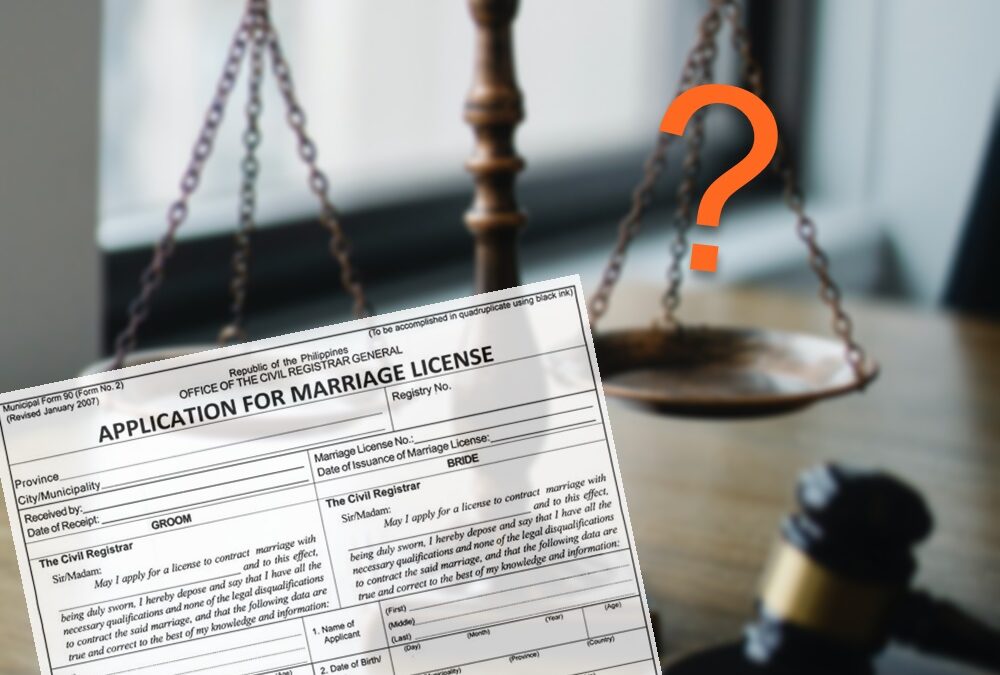Why choose us?
Why do you need Recognition Annulment?
Annulment is the only way to end a marriage between 2 Filipinos so that it is recognized by the Philippines. It is the cheapest and fastest option available at the moment.

Immigration to new Country
A foreign country will require that a Filipino be legally single before granting a visa such as a K-1 fiancee visa for immigration to the United States to remarry or live abroad. Annulment is the correct way to do this.

Remarriage in the Philippines
To remarry in the Philippines, the first marriage must first be legally ended. Without this, a marriage licence cannot be issued and complications around property and inheritance rights will occur.

End Conjugal Property Regime
A spouse generally will have a half share of the marriage property and the only way to remove the rights of an ex-spouse from future purchases is through an Annulment case.

Remove spouse as Compulsory Heir
An annulment is the cheapest way to remove a legal spouse as a compulsory heir to the marriage property. (A Will is more expensive due to Probate and Disinheritance having narrow grounds.)
Atty Britanico and
Annulment
What are the requirements?
You can start the case even if you are both abroad – you just must prove that you lived as husband and wife in a city in the Philippines. You also must be able to provide evidence to support the grounds for annulment – such as a psychologist for psychological incapacity.

Can file even if both abroad

Evidence Required

3 Witnesses if psychological incapacity

Psychologist Suggested if psychological incapacity
Annulment 7 Step Process
Email FCB Law Office to discuss your situation and so that we can assess your case to determine the right grounds for annulment such as psychological incapacity or a marriage that was void from the beginning.
Information Gathering We’ll ask for further information or supporting evidence on the grounds for annulment. We may need to send you to a psychologist if the ground is psychological incapacity.
File at court FCB Law Office will file the case at court when the required documents and evidence have been completed. This should already include the Judicial Affidavits of the Witneses.
Collusion Hearing Annulment cases in the Philippines require a Collusion hearing to check that the spouses did not manufacture evidence or are colluding on the Annulment.
Pre-trial Issues are identified and the witnesses and evidence are identified prior to the hearing. The Court will also checking to see that the Collusion Hearing as accomplished.
Witness Testimony Some judges will allow videoconferencing testimony but some require personal appearance. We will ask the judge as to what is possible. Two other witnesss are needed for psychological incapacity.
Decision After all the witnesses have testified and all the evidence presented, the judge will issue a Decision after the submission of the Formal Offer. The Decision will need to be registered when it is Final.
Further Reading

Philippine Annulment if my spouse was already married
A Philippine Annulment is used to end a marriage when one of the spouses was already married at the time of the marriage...

Annulment or nullity of marriage case while overseas
It is now easier to file an annulment or nullity of marriage case while overseas because of changes to the rules of procedure issued by the Supreme Court...

Annulment of Underage Marriage in the Philippines 2023
To prove that you were younger than 18 years old at the time of your marriage you can present your birth certificate, baptismal records, school records and any other institutional records that would prove your age...

Can I get an annulment when I have no marriage license?
A marriage is only valid when you have a marriage license or if you have an Affidavit of Cohabitation instead of a marriage license...

3 Ways to Legally Separate in the Philippines: Legal Separation, Annulment, Recognition of Foreign Divorce
The end of a marriage is a difficult time. You’ll need to read this post if you’re trying to figure out the best way to legally separate...
Frequently Asked Questions
What is annulment in the Philippines?
What are the grounds for annulment in the Philippines?
The case people commonly refer to when they discuss Annulment uses Psychological Incapacity from Article 36 of the Family Code of the Philippines. However, the grounds of bigamy, lack of formal requisites of marriage, and lack of age can also be used as grounds to end a marriage.
What is the process for filing an annulment?
The process for filing an annulment typically involves:
- Consultation with a lawyer to assess the case and grounds for annulment
- Psychological Exam with a Psychologist
- Preparation of a verified petition for annulment, stating the relevant grounds
- Filing of the petition in the appropriate Regional Trial Court (RTC)
- Collusion Hearing
- Pre-Trial
- Presentation of evidence and witnesses in court
- Court decision, either granting or denying the annulment
- Issuance of a Certificate of Finality after the decision becomes final and executory
- Registration of the annulment with the Philippine Statistics Authority (PSA) to update the marriage record
How long does the annulment process take in the Philippines?
factors such as the complexity of the case, the grounds for annulment, the workload of the court, and the cooperation of both parties.
What are the costs associated with annulment in the Philippines?
Do I need a lawyer for an annulment in the Philippines?
Can I remarry after my marriage is annulled in the Philippines?
Can I file for annulment even if my spouse does not agree?
become more complicated, expensive and lengthy if the respondent (your spouse) contests the annulment. It can also lead to the Annulment being denied.
How does an annulment affect property division and custody of children?
Can I file for annulment if my spouse is not in the Philippines?
Yes, you can file for annulment even if you and your spouse are not in the Philippines. The court requires only that you prove that you and your spouse lived as husband and wife in the Philippines and that this can be proved.
